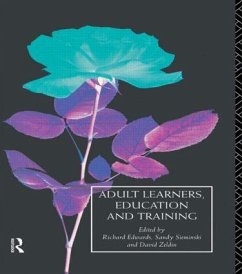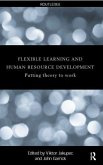In recent years, economic and demographic changes have brought into question the adequacy of initial education programmes for continuous employment. While the primary focus of debate has been on creating structures of continuous education and training linked to the economic needs of Britain, arguments and movements for wider access to all forms of learning have continued to be made. Drawing on the experience of other European countries as well as Britain, this book addresses the three major themes of the ongoing debates: who participates in what forms of education and training and how can access be widened and increased: the relationship between economic development, education and training; the education and training developed by social movements, and the changes sought in the formal sector of provision.
Hinweis: Dieser Artikel kann nur an eine deutsche Lieferadresse ausgeliefert werden.
Hinweis: Dieser Artikel kann nur an eine deutsche Lieferadresse ausgeliefert werden.
'Overall, this book is a "must" for adult education students and teachers.' - International Journal of Lifelong Education
`Good value and highly usable. I shall certainly be adding them to the recommended reading list for our Masters' courses.' - Adults Learning
`... the collection is a useful reader, with some excellent essays.' - The Times Higher Educational Supplement
`Good value and highly usable. I shall certainly be adding them to the recommended reading list for our Masters' courses.' - Adults Learning
`... the collection is a useful reader, with some excellent essays.' - The Times Higher Educational Supplement








